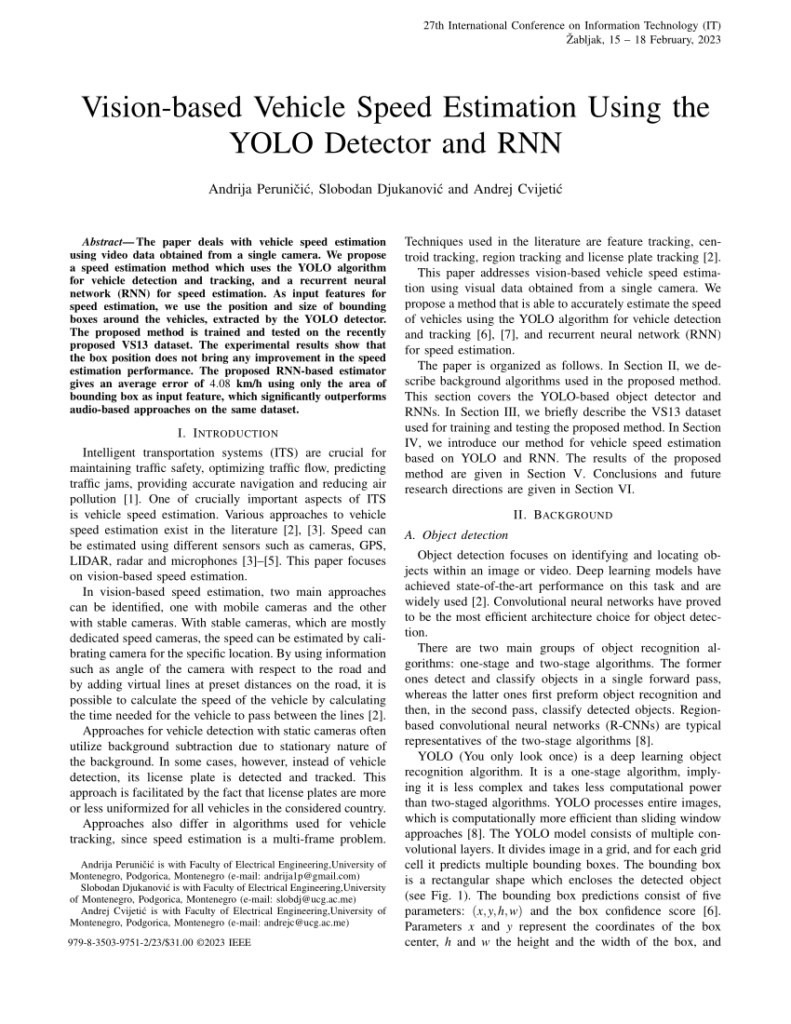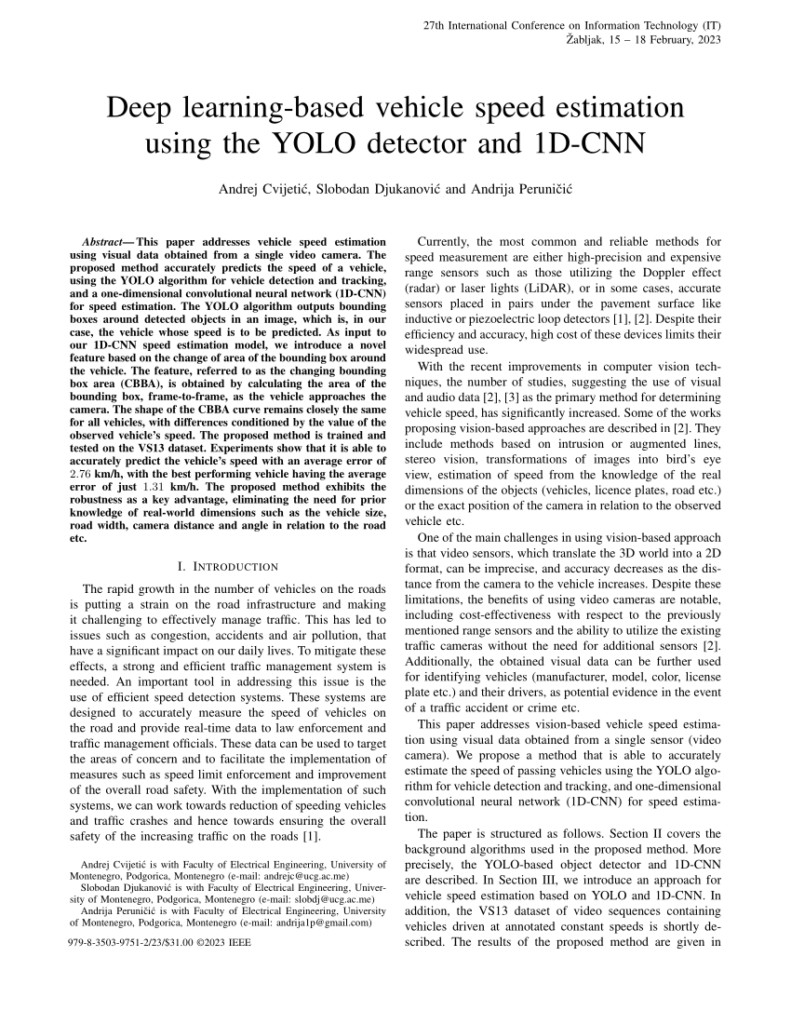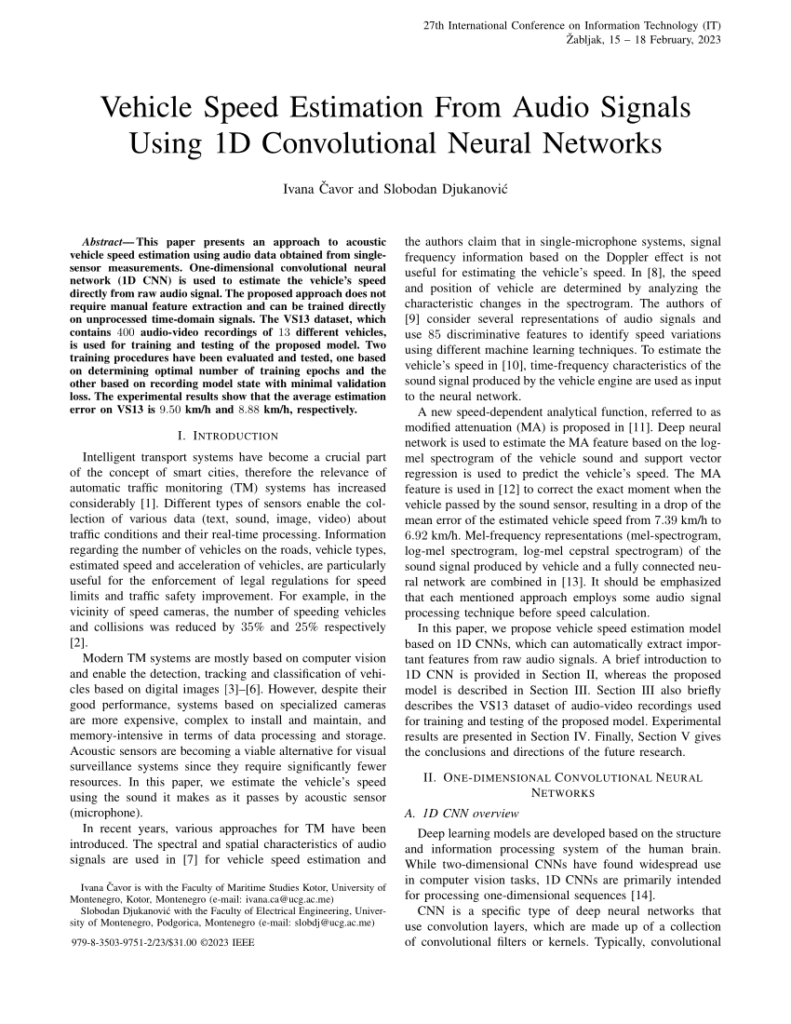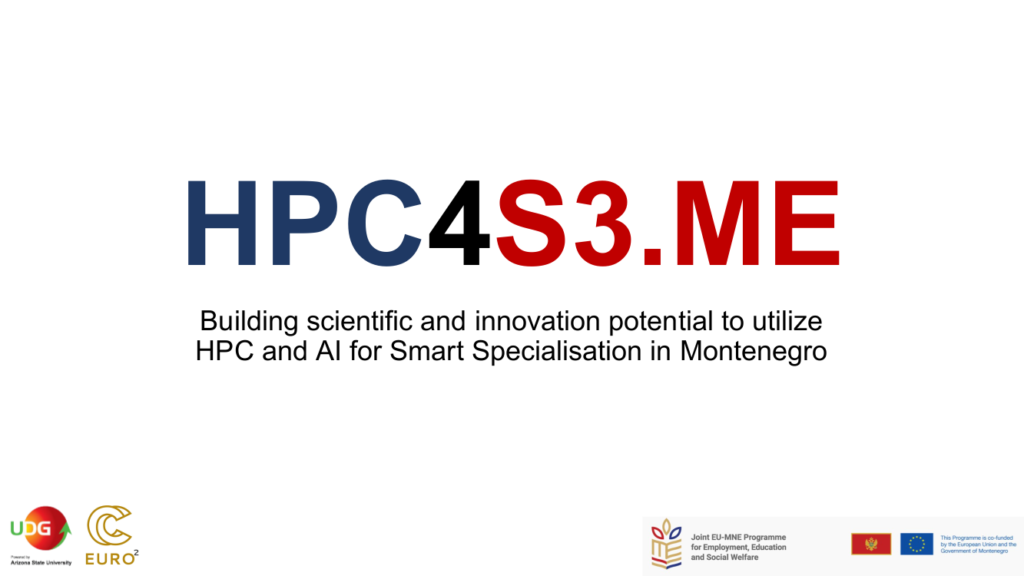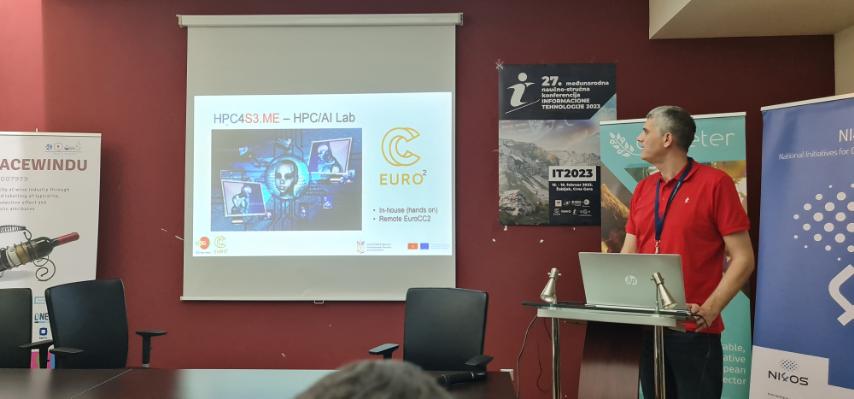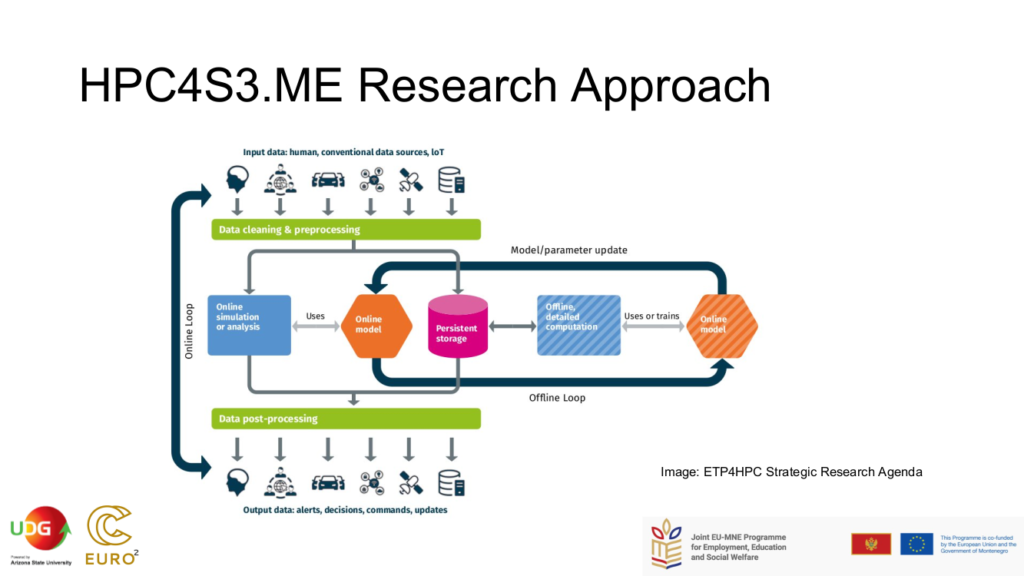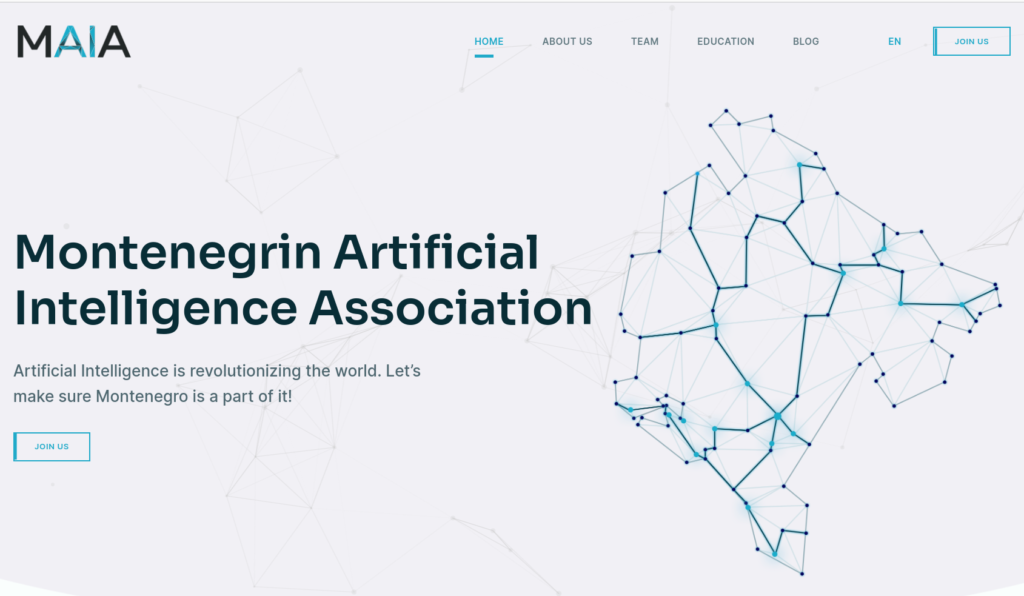Researchers from NCC Montenegro presented a paper at the 27th IEEE Conference on Information Technology IT2023. The paper is titled “Vision-based Vehicle Speed Estimation Using the YOLO Detector and RNN” and authored by Andrija Peruničić, Slobodan Djukanović and Andrej Cvijetić
ABSTRACT : The paper deals with vehicle speed estimation using video data obtained from a single camera. We propose a speed estimation method which uses the YOLO algorithm for vehicle detection and tracking, and a recurrent neural network (RNN) for speed estimation. As input features for speed estimation, we use the position and size of bounding boxes around the vehicles, extracted by the YOLO detector. The proposed method is trained and tested on the recently proposed VS13 dataset. The experimental results show that the box position does not bring any improvement in the speed estimation performance. The proposed RNN-based estimator gives an average error of 4.08 km/h using only the area of bounding box as input feature, which significantly outperforms audio-based approaches on the same dataset.
